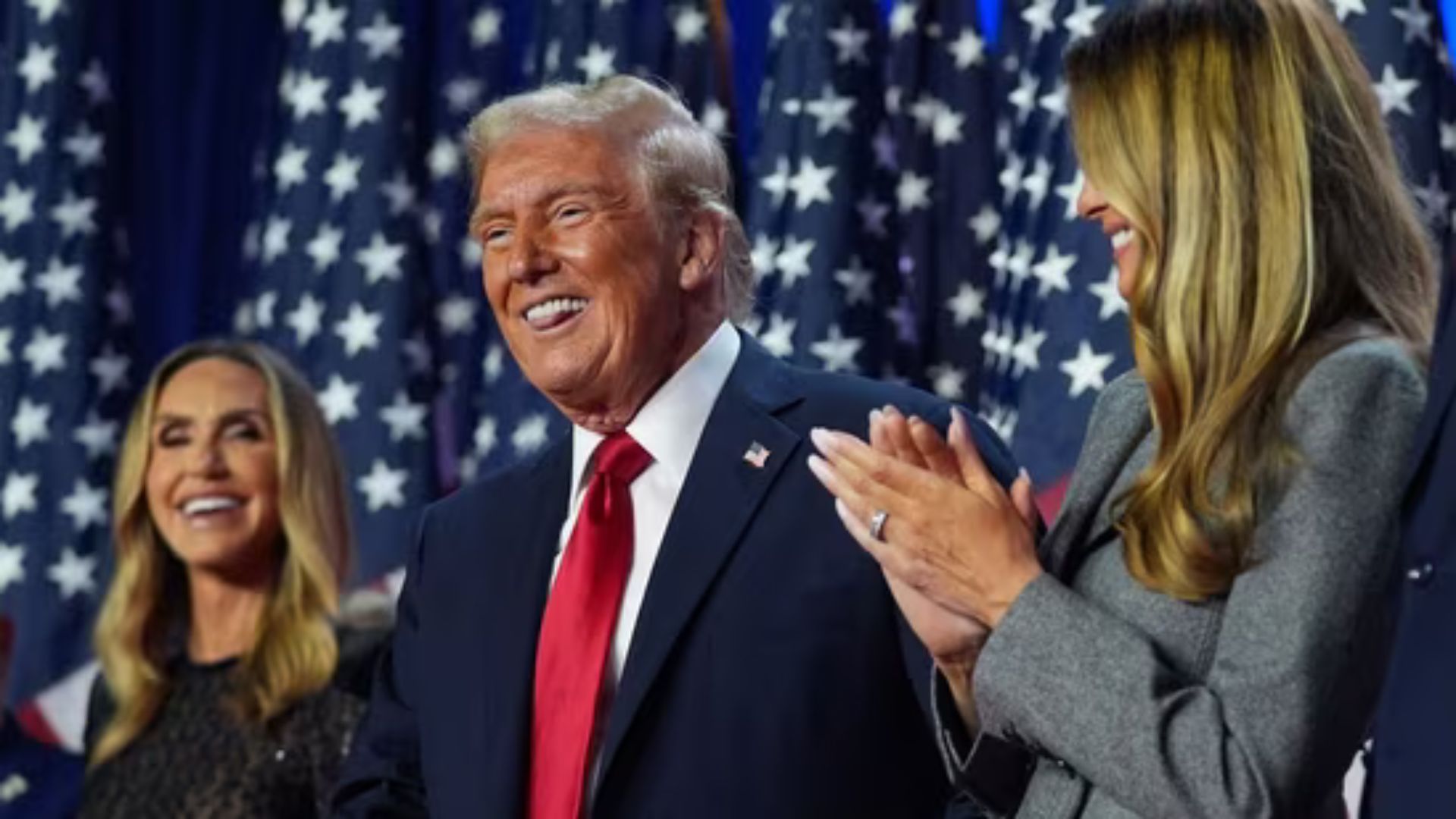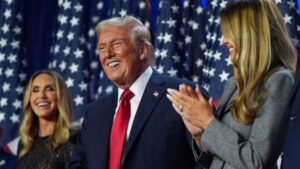Vikas Swarup, a former Indian diplomat, praised Donald Trump’s 2024 presidential win, calling it “one of the greatest political comebacks in history.” Since 1892, no U.S. president had ever lost an election and then returned to win a non-consecutive second term. However, Trump achieved this feat by securing a decisive victory over Kamala Harris and will soon be sworn in as the 47th U.S. President.
In an interview, Swarup stated, “I would say that this is one of the greatest political comebacks in history. Since 1892, no U.S. president who had lost an election has ever come back to win a non-consecutive second election. Donald Trump has done that.” According to him, pollsters consistently underestimated Trump’s connection with American voters, particularly on critical issues like inflation and immigration.
Appeal to Key Issues: Inflation and Immigration
Trump’s strong focus on reducing high grocery and housing prices, along with controlling illegal immigration, resonated deeply with voters. This message struck a chord with many Americans, especially those worried about economic challenges and border security.
Swarup highlighted Trump’s promises to tackle these concerns. He stated, “Especially the two eyes on immigration and inflation. Trump was promising better days… That resonated with voters.” Swarup believes that these issues, and Trump’s emphasis on them, played a crucial role in his victory.
Strong Ties with India: The “Three Cs”
Moving to U.S.-India relations, Swarup outlined three important factors for a positive partnership under Trump: continuity, chemistry, and convergence, which he described as the “three Cs.” Since Prime Minister Modi has held office since Trump’s first term, Swarup believes their familiarity will foster cooperation.
According to Swarup, Trump’s “chemistry” with Modi, evident in events like Howdy Modi in Houston and Namaste Trump in Ahmedabad, strengthens this relationship further. He noted, “Trump knows who Prime Minister Modi is… He consistently calls him ‘my very good friend’.” Finally, on convergence, Swarup emphasized that India and the U.S. share common goals for defense and stability in the Indo-Pacific region.
Strategic Focus on China and the Quad Mechanism
Notably, Swarup sees Trump as an early advocate of the Quad Mechanism, an alliance between the U.S., India, Japan, and Australia, aimed at countering China’s regional influence. Swarup believes Trump will work to strengthen this alliance and continue his hard stance against China, whom he perceives as a major strategic threat.
Economic Disruptions: Tariffs and Trade Policies
Regarding international trade, Swarup expects Trump to implement disruptive changes, particularly with increased tariffs on imports, including heavier duties on Chinese goods. “This is not Trump 1.0,” Swarup stated, noting that Trump seems more confident this time, with advisors he trusts implicitly. However, he warned that such tariffs could strain U.S. relations globally and might create economic instability.
Possible Withdrawal from Climate Accords and NATO Shifts
On climate policy, Swarup foresees Trump’s potential withdrawal from international climate agreements, which could hamper global environmental efforts. Furthermore, Trump might reassess the U.S. commitment to NATO, insisting European allies increase their defense spending. Still, Swarup doubts Trump will completely abandon NATO, given its strategic importance.
Middle East and European Conflict: Plans for Peace
In the Middle East and Europe, Swarup believes Trump aims to de-escalate the Israel-Gaza and Russia-Ukraine conflicts. Trump’s role as “the architect of the Abraham Accords,” according to Swarup, gives him strong relationships with Gulf states, potentially encouraging a quicker ceasefire in Israel-Gaza. In Ukraine, Swarup predicts Trump may limit military aid and push President Zelenskyy toward a compromise to end hostilities.
Trade Tensions with India: Possible Tariffs
Turning to U.S.-India trade, Swarup noted that India might face tariffs under Trump, who has labeled it the “tariff king.” However, he hopes Trump’s advisors will urge him to avoid high tariffs on India, as they could risk a trade war. Swarup also warned that such actions could accelerate moves toward de-dollarization globally.
Strengthened Defense Cooperation with India
In defense, Swarup expects that U.S.-India military cooperation will expand under Trump’s leadership. The recent SOSA agreement, which enhances defense collaboration, signals a growing strategic partnership between the two nations, which Swarup believes will strengthen further during Trump’s term.
Addressing Anti-Hindu Sentiment and Khalistan Issues
Finally, Swarup commented on Trump’s approach to issues affecting Indian-Americans, particularly anti-Hindu sentiment and the Khalistan movement. The Indian-American community, with its significant economic and educational influence, holds political weight in the U.S. Swarup believes Trump will likely address Hindu phobia and restrict the activities of Khalistani sympathizers who have previously issued open threats under the guise of free speech.
Swarup’s remarks suggest that Trump’s return to the White House could bring substantial changes to U.S. foreign policy, trade, and defense strategies, with significant implications for the U.S.-India relationship.














